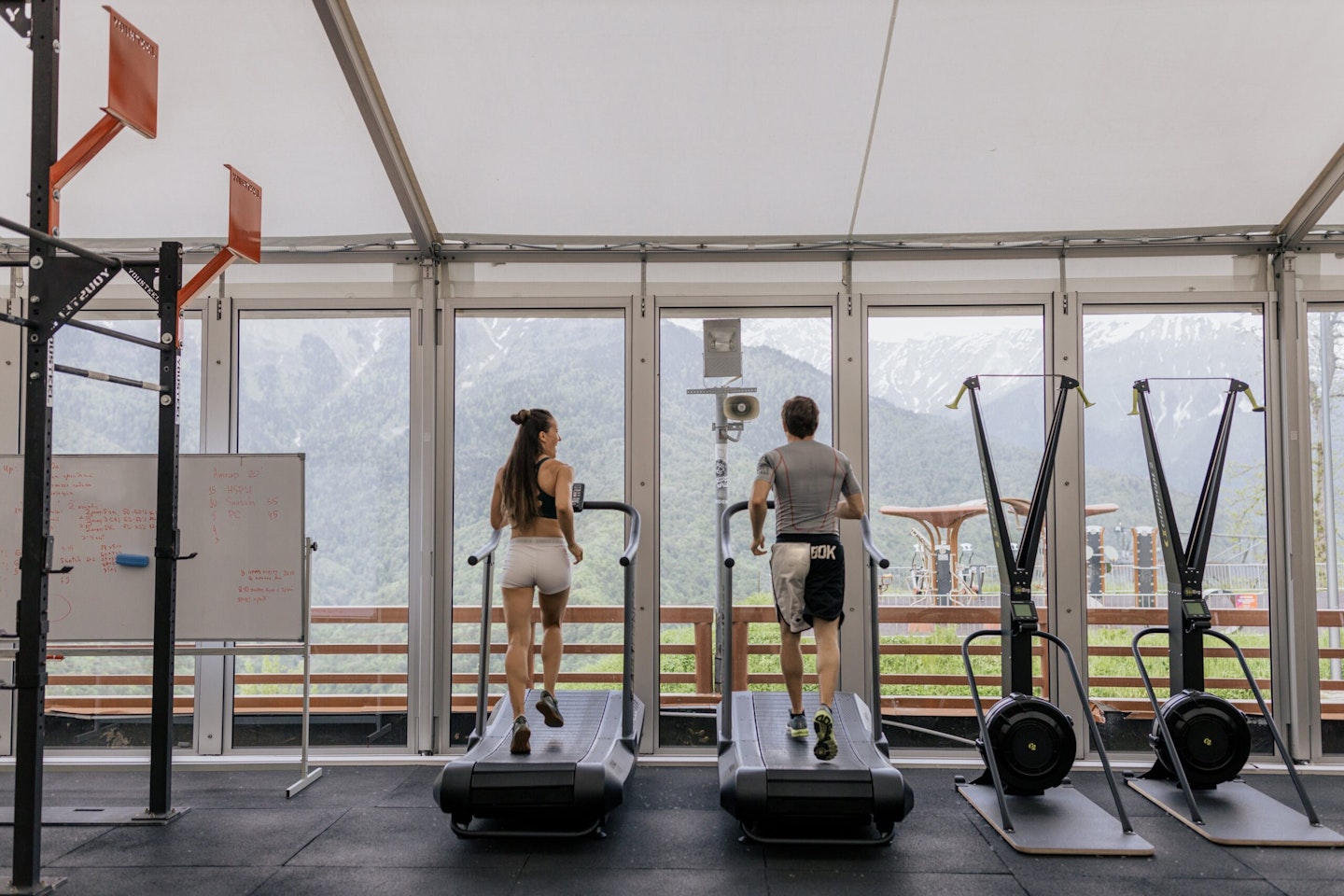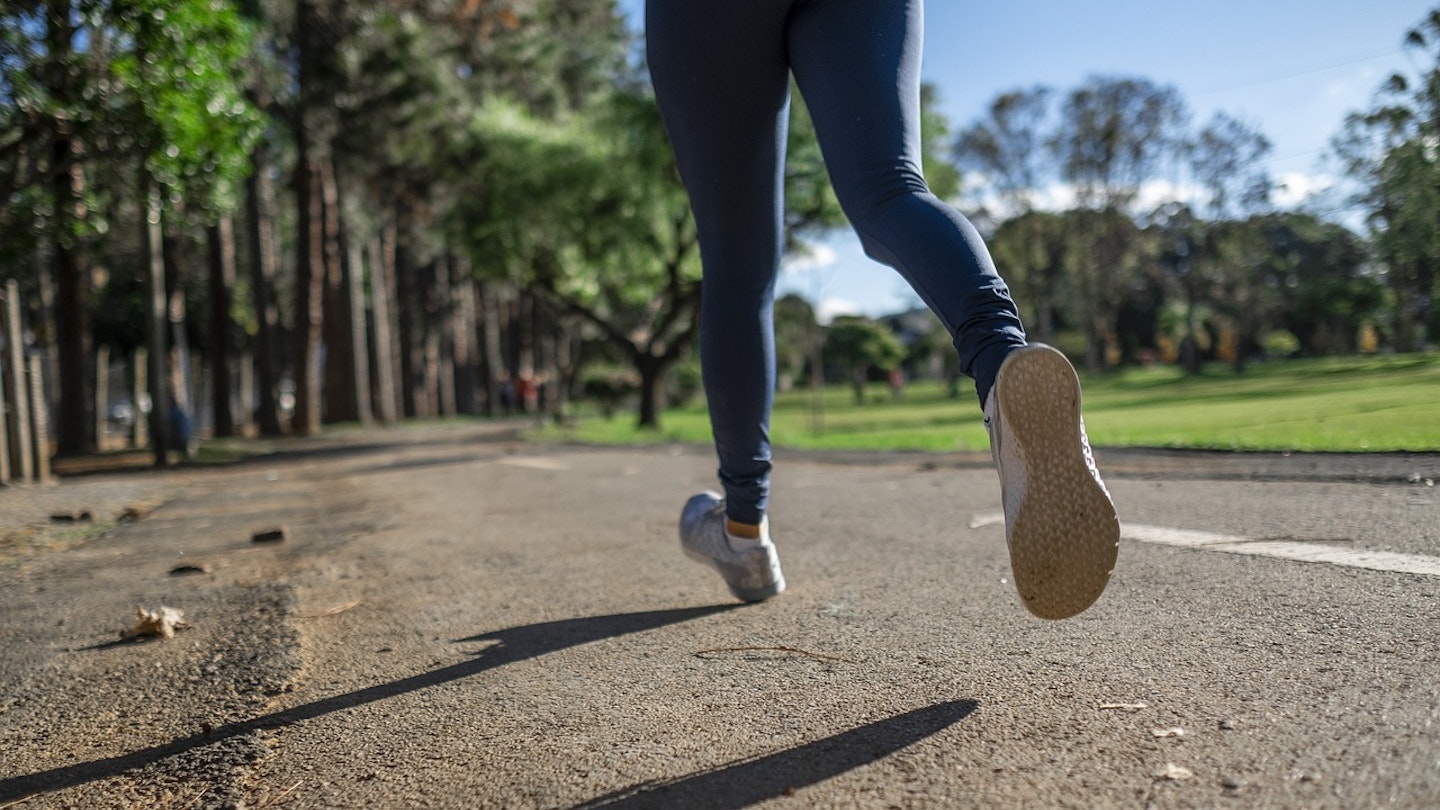Anyone who’s donned a new pair of running shoes, hit the streets (or treadmill) and stuck to it knows the endless benefits, but for those who haven’t, perhaps it’s time to get up to speed. For your health and fitness, there are so many benefits of running; there's plenty to gain, and we have to talk about it.
Committing to any consistent exercise will reap amazing rewards, but different kinds of exercise will deliver different results. Strength training, for example, when paired with the right diet, can deliver muscle gains and increased overall strength. Cardio comes with a long list of benefits, too, and while running certainly comes under cardio, we feel it deserves some extra spotlight.

If you look out the window in the mornings and see a runner and cannot wrap your head around the appeal, it’s time to turn over a new leaf. Here’s what’s in it for you if you take those first few steps.
Cardiovascular fitness
One of the biggest benefits of running cannot be overstated. Cardiovascular fitness and running go hand in hand; if you commit yourself, your cardio health will be a huge boost. Heart health is so important, and regularly elevating that heart rate through an activity like running is one of the best ways to keep that ticker healthy.
According to the National Institute of Health, the typical runner tends to have a slow resting pulse rate and a high maximal oxygen consumption - read more here. Cardiovascular fitness is far more important than people may realise, and running may just be the cheat code to ensure it stays at its absolute peak.
Strengthen muscles
Despite what the weightlifting anti-cardio crowd might attempt to convince you, running can, in fact, strengthen your muscles.
Firstly, though, we have to understand what strengthening your muscles means. By no means will running give you huge, muscular legs; only hypertrophy (muscle growth which increases mass) through strength training will enable you to gain significant muscle mass in your legs. Instead, with running, those muscles will be strengthened. Running will make your muscles tougher, they’ll become more durable, and they’ll also adapt to recover quicker as well.
Increased performance and endurance
The more you do an exercise or physical activity, the better you’ll get at them, and the more concrete the benefits will be. Aside from affecting your overall cardio and strengthening the muscles in your legs, running has an abundance of positive effects on your overall performance and endurance.
Extended cardio, like running, improves the entire way your body functions. You’ll catch your breath quicker, you won’t feel fatigued so quickly, and you’ll be able to work out and train for longer stretches.
Burn energy
Of course, as with any prolonged exercise, running burns energy. Cardio doesn’t come as traditionally effective as it does with running. It’s a form of exercise that’s so simple and so basic that nearly anyone can do it nearly anywhere.
Running elevates your heart rate, it works one of the biggest muscle groups in the body (legs), and there are so many ways to make it more intense to burn even more energy.
If you physically go out for a run, you can make your workout easier or tougher, depending on where you decide to journey out. Opting for steeper runs in areas with more hills will be tougher but will undoubtedly burn significantly more energy than sticking to flat urban areas.
Headed out to the trail? Running in adverse conditions with uneven ground and constantly changing gradients is perfect if you want to burn some serious energy. Trail running demands more effort and a powerful runner. To get the most out of running in more extreme conditions, we'd urge you to consider getting your hands on some reliable waterproof running shoes to aid in your ventures.
You can control these elements to an extent when you hit the treadmill too. Most modern treadmills offer a variety of incline and speed settings so you can simulate a tougher run. The best treadmills even offer programmes that can provide an unpredictable but invigorating run.

Is running good for weight loss?
Yes, running is an excellent tool for weight loss, just like any other form of cardio. If you regularly take up running and you pair that with being in a calorie deficit, you will undoubtedly achieve weight loss over time. The more intense your running and energy you burn, your weight loss journey will be more effective.
Most treadmills calculate roughly how many calories you’ve burnt, but for running outside you should consider getting a reputable fitness tracker which can tell you that and so much more.
Should you run every day?
It’s not advised that you run every single day, just like it’s not advised to weightlift every day. Your body needs time to recover, and it can’t do that if it is repetitively being trained without a break. If you’re new to running, then experts suggest only running 2-3 times per week, ideally spread across that week.
Once you’ve graduated to a more intermediate to advanced level of running, you can begin running around 4-6 times per week. Of course, you always have to listen to your body and have a rest if you feel your body needs it.
Does running build muscle?
To an extent, yes, running can build some muscle. To build muscle, you need to eat in a caloric surplus and put specific muscle groups through high-intensity exercise. You won’t build anywhere near as much muscle through running as you will from specifically training your legs through hypertrophy training (weightlifting). You will, however, strengthen your leg muscles through running, and you might see some proportional differences as your legs adjust to regular running.
Jack Barrell is a Tech and Fitness Writer for What’s the Best. He is invested in all things entertainment and keeps well up to date with the latest sports and exercise trends too. On his off days Jack can usually be found doing one of two things; lifting heavy weights – or watching his favourite Star Wars for the thousandth time.
